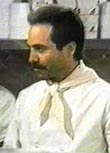|
|
 
|
|
Author
|
Topic: Judd Apatow Tests Two Versions Of The Same Film Simultaneously
|
System Notices
Forum Watchdog / Soup Nazi

Posts: 215
Registered: Apr 2004
|
 posted 05-05-2011 11:04 PM
posted 05-05-2011 11:04 PM


Judd Apatow Tests Two Versions Of The Same Film Simultaneously
Source: slashfilm.com
quote:
Though Judd Apatow has only directed three feature films (with a fourth on the way), he’s produced enough hits that his name has become synonymous with a specific type of comedy. If something is hard R-rated, kind of gross but has a heart of gold, it’ll more than likely draw comparisons to Apatow’s work. The latest film to use this formula is one that Apatow actually did produce, the May 13 release Bridesmaids. Directed by Paul Feig, the film stars Kristen Wiig (Saturday Night Live) as a jealous Maid Of Honor and though Peter gave it a glowing review, I think his review underplays just how hilarious Bridesmaids is. It’s fantastic. Possibly the funniest film Apatow has produced yet.
Comedy doesn’t just magically appear in the theater that funny though. It’s a painstaking, horribly unfunny process involving timing, editing, repetition and – in Apatow’s case – a lot of test screening. In an excellent, in-depth interview Feig did with The AV Club to promote Bridesmaids, he revealed some interesting details about Apatow’s test screening process. Not only does Apatow record audience laughter for later playback, he’ll sometimes recruit two audiences to simultaneously watch slightly different versions of the same movie in adjacent theaters.
If you are a fan of comedy, Judd Apatow, Freaks & Geeks, Paul Feig, are excited for Bridesmaids or anything like that, I highly recommend you head over to The AV Club and read their awesome interview with Feig (thanks to Kottke for the heads up). Here’s just a sampling where he talks about the Apatow test screening process:
Judd’s got this system where they always record the laughs, then you put ’em in the Avid. And so when you’re going through, you can literally go, “Does this work?” And you cue it up, hear the audience, and go, “Okay, they laughed.” At least it’s good empirical data and evidence. A lot of people balk and say, “You don’t know if it’s a shitty audience or not.” And I go, “Okay, well, we’ll do a bunch.” And then it’s also fun to even try to top stuff. Even stuff that’s working really well, you go, “Okay, we have a different version of that joke or different scene here. Let’s just plug it in for the next screening and see if it does better.” And Judd actually has this whole thing they do with side-by-side screenings at two theaters right next door to each other and do a “P” version, which is a polished version, which is the one we think is close to what we want to have be our final cut. And then another one called the “E” version, the extended version, which is the dumping ground for everything we think might work, or we wanted to try, or we’re just curious if it’s gonna work. And out of all of those screenings, you’ll always get about five or 10 new things that you didn’t think were ever gonna work that go through the roof and you plug ’em into the polished one. It’s all fairly scientific, but I think if you’re doing a little personal comedy, then you probably don’t need to do it like this. But even then it’s a good thing to get the feedback of the audience in your process. But if you’re trying to do a big studio comedy that you want both work the most to tear down the house, this is really the way to go.
Because Bill Kerr, our editor, is always saying, “You don’t want to see if something works at the premičre.” And that happens a lot when you’re too precious about it. Our goal was, once we hit the premičre, there’s nothing that hasn’t been tested that we don’t know works. We’ll always keep in a couple of jokes, just for ourselves. Then you go, “Okay, if it doesn’t work, whatever. This is kinda for us.” But none of us are brave enough to wait that long to see if it works because you want to have something that you know is clicking with an audience. A lot of filmmakers will hate hearing that. To them, that feels very hacky, But the audience are the ones that are going to come and pay the money and they’re the ones who are going tell their friends if it’s good or not. I didn’t get in the business, and Judd didn’t get in the business, to make stuff that nobody sees. I’ve made a career making stuff that nobody sees, so anything that I can do to help make something that people are going to enjoy and want to see over and over again, then I’m there.
As Feig says, a lot of people will hate hearing how much stake he and Apatow put in the audience. They might feel it’s a cop out or displays a lack of confidence both in themselves as artists and the material. However, as much as film is truly an art form, it’s also a commercial and audience driven art form. If there’s a way to make the art more successful at what it was intended to do, then why not? Testing the film is almost like doing another edit or shooting another take. It’s all part of the process.
| IP: Logged
|
|
|
|
|
|
|
|
All times are Central (GMT -6:00)
|
|
Powered by Infopop Corporation
UBB.classicTM
6.3.1.2
The Film-Tech Forums are designed for various members related to the cinema industry to express their opinions, viewpoints and testimonials on various products, services and events based upon speculation, personal knowledge and factual information through use, therefore all views represented here allow no liability upon the publishers of this web site and the owners of said views assume no liability for any ill will resulting from these postings. The posts made here are for educational as well as entertainment purposes and as such anyone viewing this portion of the website must accept these views as statements of the author of that opinion
and agrees to release the authors from any and all liability.
|

 Home
Home
 Products
Products
 Store
Store
 Forum
Forum
 Warehouse
Warehouse
 Contact Us
Contact Us




 Printer-friendly view of this topic
Printer-friendly view of this topic








![[Razz]](tongue.gif)



